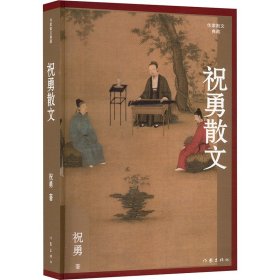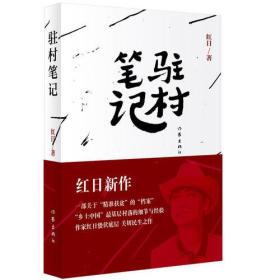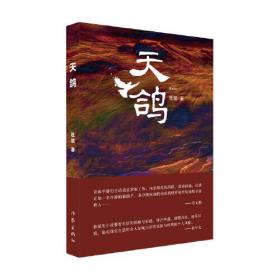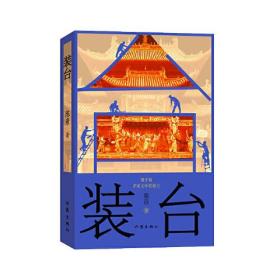
正版现货新书 宽容 9787511704665 (美)庞龙
全新正版现货,以书名为准,放心购买,购书咨询18931383650朱老师
¥ 17.1 5.9折 ¥ 29 全新
库存3件
作者(美)庞龙
出版社中央编译出版社
ISBN9787511704665
出版时间2009-01
装帧平装
开本其他
定价29元
货号6794753
上书时间2024-10-06
- 在售商品 暂无
- 平均发货时间 10小时
- 好评率 暂无
- 最新上架
商品详情
- 品相描述:全新
- 商品描述
-
导语摘要
生活本来是一次光荣的历险,结果却变成了一次可怕的经历。我一切之所以发生,是因为迄今为止,人类的生存完全被恐惧控制着。我要重复一遍,恐惧是所有不宽容的根源。
人类从远古中走来,一心想要创造一个和谐美好的世界。然而,在无可奈何的叹息声中,他们不得不面对眼前的粗陋不堪。怎样拯救这个世界?唯一办法就是——宽容。房龙的三部曲《宽容》是一部人类思想的解放史,它以犀利的笔触勾勒出了人类思想的嬗变轨迹,清晰地呈现了人类心灵深处的隐秘世界。
目录
PROLOGUE
CHAPTER 1 THE TYRANNY OF IGNORANCE
CHAPTER 2 THE GREEKS
CHAPTER 3 THE BEGINNING OF.RESTRAINT
CHAPTER 4 THE TWILIGHT OF THE GODS
CHAPTER 5 IMPRISONMENT
CHAPTER 6 THE PURE OF LIFE
CHAPTER 7 THE !NQUISITION
CHAPTER 8 THE CURIOUS ONES
CHAPTER 9 THE WAR UPON THE PRINTED WORD
CHAPTER 10 CONCERNING THE WRITING OF HISTORY IN GENERAL AND THIS BOOK IN PARTICULAR
CHAPTER 11 RENAISSANCE
CHAPTER 12 THE REFORMATION
CHAPTER 13 ERASMUS
CHAPTER 14 RABELAIS
CHAPTER 15 NEW SIGNBOARDS FOR OLD
CHAPTER 16 THE ANABAPTISTS
CHAPTER 17 THE SOZZINI FAMILY
……
内容摘要
If I hereby state that the savage was the most intolerant of human beings, I do not mean to insult him, for I hasten to add that given the circumstances under which he lived, it was his duty to be intolerant. Had he allowed any one to interfere with the thousand and one rules upon which his tribe depended for its continued safety and peace of mind, the life of the tribe would have been put in jeopardy and that would have been the greatest of all possible crimes.
But (and the question is worth asking) how could a group of people, relatively limited in number, protect a most complex system of verbal regulations when we in our own day with millions of soldiers and thousands of policemen find it difficult to enforce a few plain laws?
Again the answer is simple.
The savage was a great deal cleverer than we are. He accomplished by shrewd calculation what he could not do by force.
He invented the idea of "taboo."
Perhaps the word "invented" is not the right expression. Such things are rarely the product of a sudden inspiration. They are the result of long years of growth and experiment. Let that be as it may, the wild men of Africa and Polynesia devised the taboo, and thereby saved themselves a great deal of trouble.
The word taboo is of Australian origin. We all know more or less what it means. Our own world is full of taboos, things we simply must not do or say, like mentioning our latest operation at the dinner table, or leaving our spoon in our cup of coffee. But our taboos are never of a very serious nature. They are part
……
精彩内容
《西方人文经典读本-宽容(英文版)》,本书以深切的人文关怀解析了人类为寻求思想的权利所走过的艰辛历程,展示了几千年来人类社会在政治、宗教、文化、社会等方面所经历的曲折而漫长的历史过程。
相关推荐
-

正版现货新书 论宽容 9787208171992 (英)洛克
全新北京
¥ 48.10
-

正版现货新书 宽容 9787517124252 子墨 编著
全新北京
¥ 18.66
-

正版现货新书 宽容 9787501238927 执云主编
全新北京
¥ 14.15
-

宽容【正版,现货】
八五品上海
¥ 6.00
-

正版现货 宽容
九品潍坊
¥ 68.00
-

正版新书 学会宽容
全新北京
¥ 12.50
-

宽容 上(新书正版)
九五品德州
¥ 5.00
-

正版现货新书 宽容更从容 9787510046216 朱爱国
全新北京
¥ 28.30
-

宽容 精装正版现货
八品哈尔滨
¥ 4.00
-

(正版现货)宽容(特价)
九品北京
¥ 41.30
— 没有更多了 —














以下为对购买帮助不大的评价